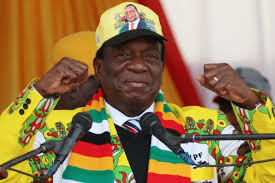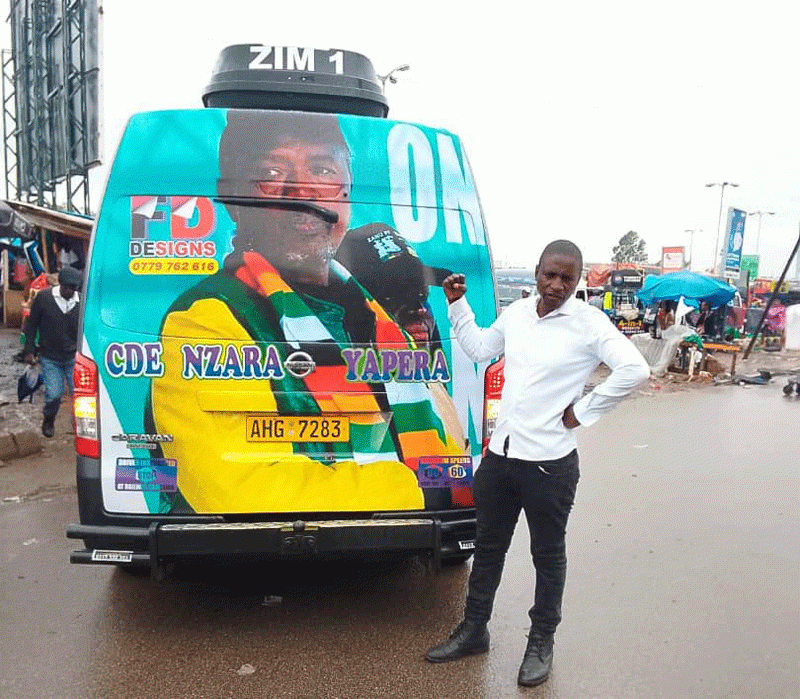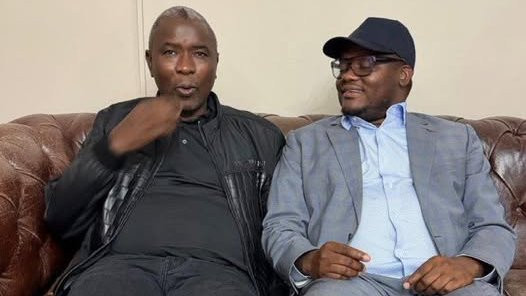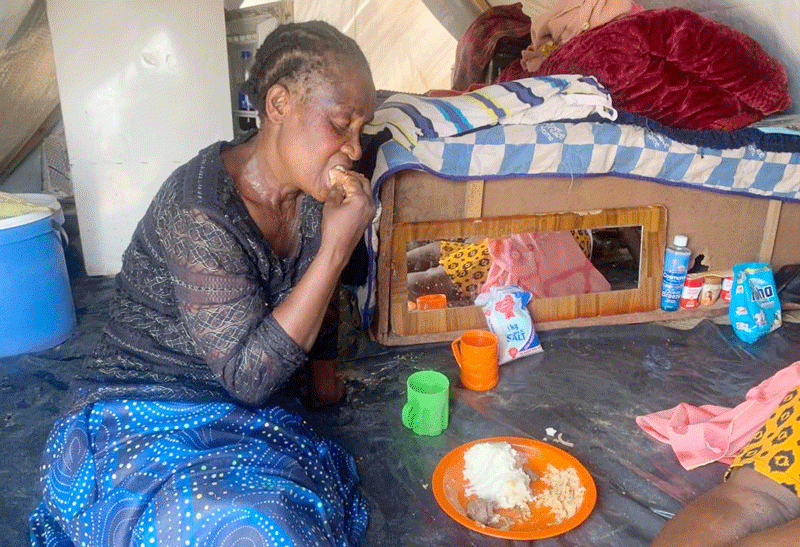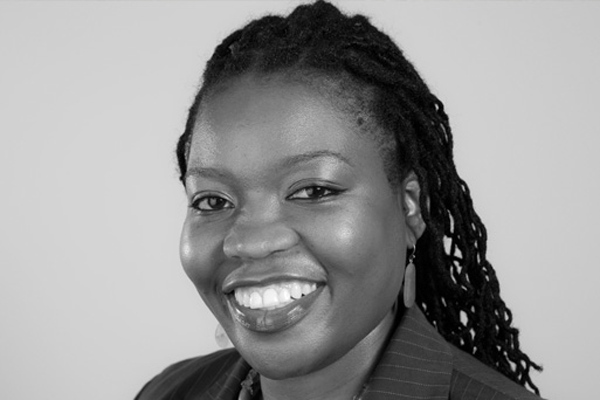
FIDEL Mabereza froths at the mouth as he recounts how he ended up at Tongogara Refugee camp in Chipinge after fleeing the civil unrest in the Democratic Republic of Congo (DRC).
BY VENERANDA LANGA

His eyes are blood-shot and clearly need medical attention, which he said was difficult to get as he is a refugee without a job, documents or money.
“I came to Zimbabwe in July 2012 after walking several months from the DRC, and then to Zambia and finally to this country,” the 25-year-old Mabereza said in broken English.
“Rebel soldiers had invaded our village in Kavu. I was in the village at that time because the university that I was attending at Katogota was on a semester break.
“They beat up people, raped women and even committed murders and forced the boys to join them.
“I ran away and came to Zimbabwe through Zambia to live with several other refugees at Tongogara Refugee Camp.”
Mabereza said since 2012 when he started living at the refugee camp, his family had endured unsavoury living conditions as they were considered stateless because they cannot be granted Zimbabwean citizenship, nor can they go back to the DRC.
- Chamisa under fire over US$120K donation
- Mavhunga puts DeMbare into Chibuku quarterfinals
- Pension funds bet on Cabora Bassa oilfields
- Councils defy govt fire tender directive
Keep Reading
“My living conditions are very bad. I have no documents as I left the DRC in a huff, running away from the rebels,” he said.
“My 10-month-old baby does not have documents and she is a very sickly baby, currently in hospital.
“I wish I could take her to a private doctor. But I do not have money because I only get $10 per month at the refugee camp, which is supposed to cater for food, clothing, medical expenses and everything I need. How can one live on $10?” he said, wiping off the white foam from his mouth.
“I cannot afford to buy clothes and we are not allowed to move outside of Tongogara without permission, it is like we are prisoners.
“The camp is situated in a wildlife area and so it is impossible to move around, even if one were granted permission to do so.”
Sata Ngobanya, also from DRC has been living at Tongogara Camp since 2011 when he fled the civil unrest in his country.
“My wife was a family member of a rebel Banyamulenge fighter and so we were targeted by members of my village. We had to flee together with my nine children. We used to have a good life in the DRC with a good house and enough clothes and food, but now the suffering is worse in the refugee camp,” Ngobanya said.
“We live in a three-roomed pole and dagga makeshift house and the camp is dusty. Due to my refugee status, my life standards have been severely reduced. There are few households that have toilets at the camp and we relieve ourselves in the bush. It is dangerous because the place is surrounded by wild animals. Even our women have to use the bush.”
He said being a person without a state had a lot of disadvantages in terms of rights.
“Whenever I have to leave the refugee camp, I have to get permission. It’s like I am as good as a prisoner,” Ngobanya said, displaying a form titled, Authority to leave centre, which is required by law under section 15 (3) of the Zimbabwe Refugee Regulations of 1985.”
Although he has a refugee identity card, it does not guarantee him any freedom.
Ngobanya said they were not recognised as Zimbabweans and they cannot go back to their country of origin.
“We spent more than 10 years at refugee camps and others ended up dying without getting recognition that they belong to any state,” he said.
“We cannot be employed by anyone and whenever we do piece jobs at farms to get more money, we are rounded up and arrested, and sometimes people exploit us and make us work for nothing.
“I wish I could be given permanent residence in this country so that I can get proper documentation for myself and my children, get a job, get health attention and send my children to school.”
Although refugees in Zimbabwe are treated at government hospitals upon production of a letter to prove they are refugees, they say it is difficult to seek treatment from private hospitals if there were complications because they do not have money.
Last week the 40th Plenary Session of the Sadc Parliamentary Forum sat in Harare where legislators from the region discussed issues of statelessness in the region.
United Nations Refugees Agency (UNHCR) country representative (Zimbabwe) Robert Tibagwa said at least 10 million people were stateless globally.
The international legal definition of a stateless person is an individual who is not considered as a national by any state under the operation of its law. It means the person has no nationality of any country.
Refugees and immigrants are the most vulnerable groups affected by statelessness.
Globally, there is an action plan to end statelessness, which includes resolving existing situations of statelessness, prevention of new cases of statelessness, and identification and protection of stateless persons.
Gender specialist Isabella Matambanadzo said it was vital for Sadc parliaments to debate the issue, adding MPs must insist that governments should collect data on statelessness in a manner that is gender sensitive.
“Statelessness affects single mothers in that their children born on the wrong side of the sheets experience problems of identity and can be stateless in their own state,” she said.
“Children born in times of social and economic humanitarian upheaval, in situations of rape and incest are also victims of statelessness and MPs should enact laws that solve where they belong.”
Matambanadzo said MPs must monitor the bureaucratic behaviour of governments in issuing of birth certificates, identity documents and other particulars so that people do not become stateless, and propose at their parliaments that no person in Sadc becomes stateless.
South African Lawyers for Human Rights’s director for the stateless programme Liesl Muller, recounted stories of different people who had experienced statelessness in southern Africa.
She said because some people were born of, for example, a South African father and a Zimbabwean mother, there was confusion on which country they belonged to.
“Children born of refugees encounter problems in that sometimes they are granted birth registration, but it is temporary registration which does not state their nationality,” Muller said.
“People with dual citizenship are also asked to renounce their nationality without acquiring another nationality. Children left without parents are also vulnerable to becoming stateless.
UNHCR senior regional protection officer for statelessness (southern Africa) Matthias Reuss said Sadc MPs must push for ratification and domestication of the 1954 and 1961 statelessness conventions and other human rights protocols to protect stateless people.
He said statelessness in southern Africa was caused by excessive requirements for documentation, migratory workers, broken family ties, unaccompanied minors, and situations of discrimination of populations, for example women.
Reuss said the consequences were poverty, failure to get identity documents, failure to get education, food insecurity, lack of housing and formal employment, discrimination, exploitation and other human rights issues.
Sadc PF regional women’s caucus vice-chairperson Monica Mutsvangwa said the UNHCR must make available country data on statelessness because many Zimbabweans believed there were no stateless people in the country.

